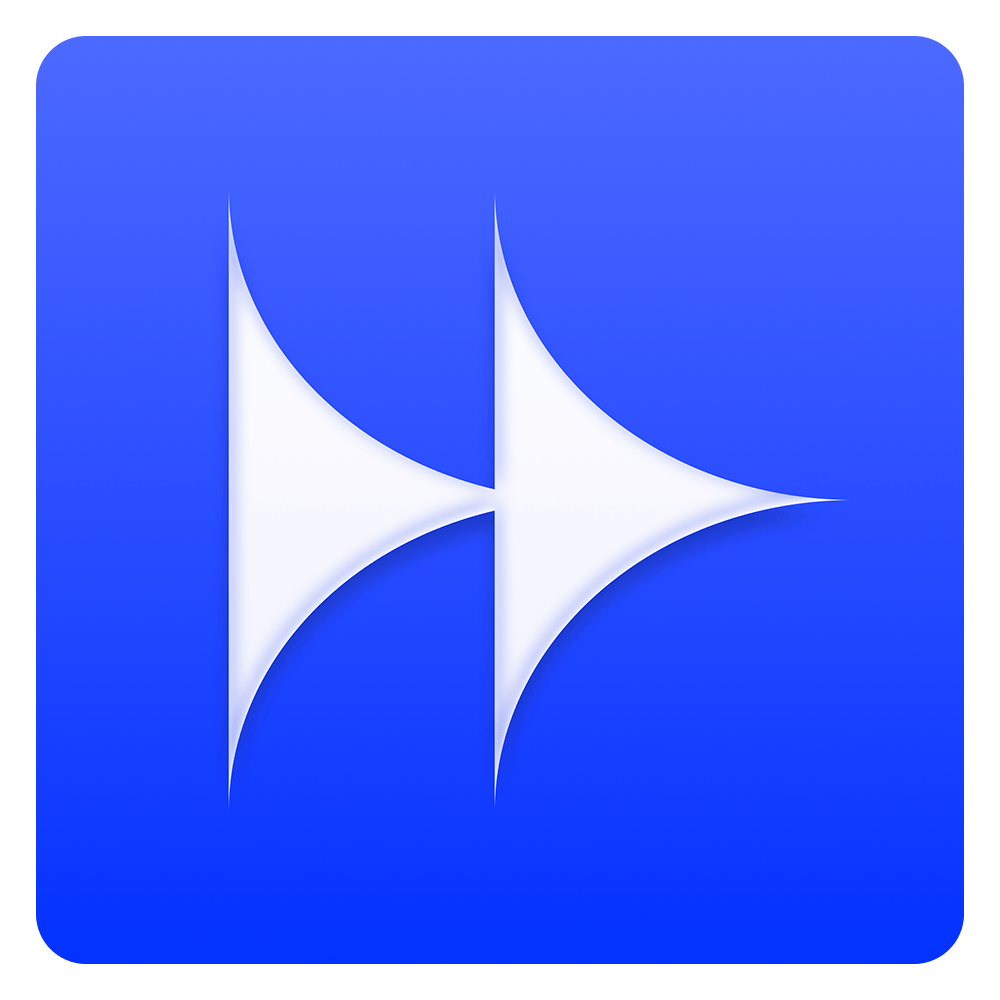Discover New Sounds: How to Find Similar Bands That You'll Love

Ever find yourself stuck listening to the same artists on repeat? It’s easy to get comfortable with your go-to bands, but there’s a whole world of music out there just waiting to be discovered. Finding similar bands to the ones you already love can open doors to fresh sounds, new favorites, and even a deeper appreciation for the music you enjoy. Whether you’re into rock, pop, jazz, or anything in between, this guide will show you how to expand your playlist and explore new artists effortlessly.
Key Takeaways
- Discovering similar bands can refresh your music experience.
- Online tools like Spotify and Last.fm make finding new artists simple.
- Genres and subgenres are great pathways to uncovering related music.
- Social media and fan communities offer unique music recommendations.
- Live concerts and festivals introduce you to opening acts and new bands.
Why Finding Similar Bands Is a Game-Changer
Discovering Hidden Gems
Ever stumbled across a band you’ve never heard of and instantly fallen in love? That’s the magic of finding similar bands. When we dive into a new artist’s world, we often uncover hidden gems that feel like they were made just for us. It’s like opening a treasure chest of music you didn’t even know you were searching for. Some of our all-time favorite songs have come from these discoveries, and honestly, it’s one of the best feelings as a music fan.
Expanding Your Music Library
Let’s face it—listening to the same playlist on repeat gets old fast. Finding similar bands is one of the easiest ways to keep your music library fresh and exciting. Imagine turning a modest collection into a sprawling library filled with tracks for every mood. It’s not just about quantity, though. The quality of your collection improves when you add artists who truly vibe with your taste. Plus, it’s always fun to show off a killer playlist that nobody else has.
Connecting With Like-Minded Fans
Music has this incredible way of bringing people together. When you discover a new band, you’re also stepping into a community of fans who love the same sound. Whether it’s chatting in online forums, swapping playlists, or meeting people at concerts, finding similar bands can spark connections you didn’t see coming. Suddenly, you’re not just a fan—you’re part of a tribe. And let’s be real, geeking out over music with someone who “gets it” is an experience like no other.
How to Use Online Tools to Find Similar Bands
Exploring Artist Finder Platforms
Sometimes, finding new music feels like a chore, right? But online tools make it a breeze. Platforms like "Similar Artists Finder" are a great way to start. You just type in your favorite band, and boom, you get a list of artists that sound like them. The best part? These tools often rank recommendations by how closely they match your taste. Some even let you save playlists directly to Spotify or check out YouTube videos of new tracks.
Here’s what these platforms usually offer:
- A list of artists similar to your favorite.
- Song recommendations based on your top picks.
- Quick access to top tracks by the artist you searched for.
It’s like having your personal music assistant. Just type, click, and enjoy.
Leveraging Spotify and Last.fm
Spotify and Last.fm are like the holy grail for music discovery. Spotify’s "Fans Also Like" section is a hidden gem. It’s tucked away in artist profiles but worth the hunt. And if you’re into playlists, Spotify’s algorithm-based mixes like "Discover Weekly" can be a goldmine for similar bands.
Last.fm, on the other hand, tracks your listening habits and builds a profile of your taste. The more you listen, the better its recommendations get. Plus, their "Similar Artists" feature is spot-on for finding bands you’d probably never stumble upon otherwise.
Tips for Accurate Searches
Alright, so there’s a bit of a trick to getting the best results with these tools. Here are some quick tips:
- Be specific: Instead of searching "rock music," try the name of a band you love. The more precise, the better.
- Explore subgenres: If you’re into indie rock, don’t shy away from exploring related genres like dream pop or post-punk.
- Don’t ignore the previews: Many tools let you listen to short clips. Use them! It’s a quick way to decide if a band’s vibe works for you.
Music discovery doesn’t have to feel overwhelming. With the right tools, it’s like opening a treasure chest of sounds you didn’t even know you needed.
And hey, if you’re out and about and hear a song you like, apps like Shazam can identify it for you and even suggest similar tracks. It’s like having a music detective in your pocket!
The Role of Genres in Finding Similar Bands
Understanding Genre Overlaps
Genres are like the DNA of music—they tell us a lot about what makes a band tick. If you love a specific band, chances are, their sound is influenced by a mix of genres. For example, if you're into Linkin Park, you're probably drawn to a blend of nu-metal, alternative rock, and even a bit of electronic. Knowing these overlaps can help you discover bands with a similar vibe.
Here’s a quick way to think about it:
| Genre | Typical Characteristics | Example Bands |
|---|---|---|
| Nu-Metal | Heavy guitars, rap vocals, emotional lyrics | Linkin Park, Papa Roach |
| Indie Rock | Lo-fi sounds, introspective themes | Arctic Monkeys, The Strokes |
| Synth-Pop | Electronic beats, catchy melodies | CHVRCHES, Depeche Mode |
By understanding the genres your favorite bands fall into, you can start piecing together a roadmap to similar artists.
How Subgenres Can Surprise You
Sometimes, the magic happens in the subgenres. You might think you’re a rock fan, but then you stumble into post-rock or math-rock, and it’s like discovering a secret menu at your favorite restaurant. Subgenres can give you a fresh perspective and lead you to bands you never knew existed.
For instance:
- Love classic rock? Try exploring psychedelic rock.
- Into hip-hop? Check out experimental hip-hop or lo-fi beats.
- Obsessed with pop? Dive into dream pop or hyperpop.
The beauty of subgenres is that they’re like hidden doors. Once you walk through, you might find a whole new world of music waiting for you.
Examples of Genre-Based Recommendations
Let’s say you’re a fan of The Weeknd. His music spans genres like R&B, pop, and electronic. Based on this, you might enjoy:
- Artists like Sia for their emotional depth.
- Synth-heavy bands like CHVRCHES.
- Experimental R&B artists like FKA Twigs.
The same goes for other genres. If you’re into punk rock, you might love discovering post-punk bands or even ska-punk groups. The possibilities are endless, and it all starts with understanding the genres you already love.
Sometimes, the best discoveries happen when you least expect them. Let the genres guide you, but don’t be afraid to stray off the beaten path.
Personalized Recommendations: The Key to Finding Similar Bands

How Algorithms Work Their Magic
Ever wonder how music platforms seem to know exactly what you’ll like? It’s all about the algorithms. These clever programs analyze your listening history, favorite artists, and even the time of day you listen to music. They compare this data with others who have similar tastes to create tailored suggestions. Think of it as your own personal DJ—one that never gets it wrong. The beauty of it? You don’t even have to lift a finger.
Creating Playlists Based on Suggestions
Once you’ve got a list of recommendations, the fun begins. Start building playlists that mix your favorite tracks with the new ones you’ve discovered. Here’s a simple process:
- Pick a theme for your playlist—maybe “Chill Vibes” or “Workout Jams.”
- Add a mix of your go-to songs and a few from the recommendations.
- Give it a test run. If a song doesn’t fit the vibe, swap it out.
Before you know it, you’ll have a playlist that feels fresh but familiar.
Saving Your Favorites for Later
Sometimes, you’ll stumble upon a song that hits just right, but it doesn’t quite fit into any playlist you’ve got going. No worries. Save it for later! Most platforms let you add songs to a “Liked” or “Favorites” list. It’s like a digital sticky note for music. Later, you can revisit these tracks and decide where they belong—or just enjoy them on their own.
Personalized recommendations aren’t just about finding new music—they’re about building a soundtrack for your life. Whether you’re chilling at home or on a road trip, these tools make it effortless to keep your music fresh and exciting.
If you’re looking for something even more unique, why not try creating personalized songs? With tools like the Instant Song Builder, you can get custom tracks made just for you. It’s like taking your music taste to the next level.
Exploring Similar Bands Through Social Media and Communities
Joining Music Forums and Groups
Let’s be real—nothing beats finding a group of people as obsessed with music as we are. Music forums and groups are like treasure troves for discovering new bands that vibe with your taste. Platforms like Reddit have subreddits dedicated to every genre you can imagine. From r/indieheads to r/metal, there’s a place for everyone. Facebook groups are another goldmine. Some of these communities even host listening parties or share exclusive artist interviews. The best part? You’ll always find someone who can recommend a band you’ve never heard of before.
Following Artist Recommendations
Artists love sharing their musical influences or hyping up their friends in the industry. Ever notice how some bands post “if you like us, check out these guys” on their socials? Take note of those. Following your favorite artists on Instagram or Twitter can lead you to a whole new world of music. And don’t forget about Spotify—many artists create public playlists featuring songs they love. It’s like getting a personal recommendation straight from the source.
Engaging With Fan-Made Playlists
Fan-made playlists are seriously underrated. Whether it’s a “Songs That Sound Like [Your Favorite Band]” playlist or a collection of tracks from a specific genre, these playlists are often curated with love and a deep knowledge of the music. You can find them on Spotify, YouTube, or even shared in those same music forums and groups we mentioned earlier. Plus, fans tend to dig deep, so you’ll often find hidden gems that algorithms might miss.
Social media and online communities aren’t just about scrolling—they’re about connecting. When we dive into these spaces, we’re not just finding new bands; we’re building a network of fellow music lovers who keep the recommendations flowing.
| Platform | Best For | Example Use Case |
|---|---|---|
| Niche music discussions | Joining r/indieheads for indie recs | |
| Facebook Groups | Local or genre-specific tips | Finding regional concert updates |
| Spotify | Artist and fan playlists | Discovering curated genre playlists |
And hey, if you’re a creative yourself, platforms like Vampr can connect you with other musicians and even help you collaborate on projects. It’s not just about listening—it’s about creating, too!
Why Live Performances Can Help You Find Similar Bands
Discovering Openers and Supporting Acts
One of the best parts of going to a live show is discovering new music you didn’t even know you needed in your life. Openers and supporting acts are often handpicked because they vibe with the headliner’s style. It’s like getting a curated playlist in real life. We’ve left concerts with new favorite bands just because they happened to play first. Keep your ears open and maybe jot down a name or two—trust us, it’s worth it.
Networking With Fellow Concert-Goers
Let’s be real: music fans love to talk about music. At shows, you’re surrounded by people who already share your taste. Strike up a conversation! Ask someone who they’re excited to see, or if they’ve got any band recommendations. You’d be surprised how often this leads to discovering artists you’ve never heard of. Plus, it’s a fun way to connect with others who are just as passionate as you.
Exploring Festival Lineups
Festivals are a goldmine for finding similar bands. The lineups are usually packed with artists who share some kind of musical DNA. If you’re at a festival for a headliner you love, chances are there are a dozen other acts on the bill that you’d dig too. Pro tip: wander around and check out smaller stages. Some of the best discoveries happen when you stumble upon a band you weren’t even planning to see.
"Live shows aren’t just about the music—it’s about the whole experience. And part of that experience is finding your next obsession."
The Joy of Serendipity in Music Discovery

Letting Algorithms Surprise You
Sometimes, the best discoveries happen when we let go of control. Ever clicked on a "Recommended for You" playlist and found a song that instantly became your new favorite? That’s the magic of algorithms. They’re like digital treasure hunters, digging up tracks you didn’t even know you needed. Sure, not every suggestion will hit the mark, but when it does, it feels like the universe just "gets" you.
Browsing Random Playlists
Scrolling through playlists with quirky names like “Rainy Day Feels” or “Songs to Get Lost To” can be oddly thrilling. It’s like flipping through a mixtape made by someone you’ve never met. You start with zero expectations, and before you know it, you’re adding half the songs to your library. Pro tip: Shuffle mode can be your best friend here—it keeps things unpredictable and fun.
Trusting Your Musical Instincts
Sometimes, you’ve just got to follow your gut. Maybe you’re drawn to an album cover, or the name of a band catches your eye. Trust that instinct and give it a listen. You might not always strike gold, but when you do, it’s like finding a secret passage in a maze. That sense of discovery? Priceless.
Music has this incredible way of connecting to our mental states, sometimes even more deeply when we stumble onto it by accident. Those unplanned moments can turn into the most meaningful ones.
Discovering new music can be a delightful surprise! Sometimes, the best tunes come from unexpected places, making the journey of finding them even more exciting. If you want to explore more about this joyful experience, visit our website for tips and playlists that will help you uncover hidden gems in music. Don't miss out on the fun!
Wrapping It Up
So, there you have it! Finding new bands or artists that match your vibe doesn’t have to be a chore. With tools like Similar Artists Finder or just diving into recommendations on streaming platforms, you can stumble upon some real gems. It’s like going on a little musical treasure hunt, and who doesn’t love that? Next time you’re stuck in a playlist rut, give these tips a shot—you might just find your next favorite band. Happy listening!
Frequently Asked Questions
How can I find bands similar to my favorite artist?
You can use online tools like Spotify, Last.fm, or Similar Artists Finder. Just type the name of your favorite artist, and these platforms will suggest similar bands or artists you might enjoy.
What are some examples of bands similar to Linkin Park?
If you like Linkin Park, you might enjoy bands like Papa Roach, Breaking Benjamin, Hoobastank, or Three Days Grace. These bands share a similar style and vibe.
Why should I explore bands in the same genre?
Genres help group artists with similar sounds. Exploring within a genre can uncover hidden gems and expand your playlist with music you'll likely enjoy.
Can playlists help me discover new music?
Yes! Platforms like Spotify allow you to create playlists based on recommendations. You can also explore user-made playlists for fresh discoveries.
How do live concerts help in finding similar bands?
Opening acts and supporting bands at concerts often have a similar style to the headliner. Festivals are also great for discovering new artists in the same genre.
What’s the easiest way to start discovering new music?
Start with a music discovery tool or playlist. Let algorithms or curated lists surprise you with suggestions based on your current favorites.





